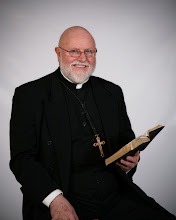We can be a martyr even without the bloodshed. Whenever we set aside our unhealthy desires and avoid the traps of iniquity, we are a martyr - witness to the power of our Lord and Saviour, Jesus Christ.
Birds are fooled, and the animals of the forest, by the very charms that bring their destruction. Caves as well as food deceive them. They do not know how to avoid evil, and they are not restrained by the law.
Law is given to humanity, and we choose a doctrine of life, from which we remember that it is possible to live carefully, and recall our own place, and get rid of things that cause death.
Whoever abandons rule condemns himself severely: he will be bound with iron, or lose his position, or be executed - he loses what he ought to be enjoying.
We have been warned by example. Do not commit serious iniquities. We have been transformed in baptism; have charity, and run away from the bait of the mousetrap, where there is death.
We have been warned by example. Do not commit serious iniquities. We have been transformed in baptism; have charity, and run away from the bait of the mousetrap, where there is death.
Many martyrdoms are made without shedding blood, Not to covet the property of other people; to wish for the benefit of martyrdom; to control our tongue; to make ourselves humble; never to use force willingly or fight back when force is used against us - these things will give us a patient mind. And then, know that we are a martyr!
-Commodianus, Instructions, 48
-Commodianus, Instructions, 48
